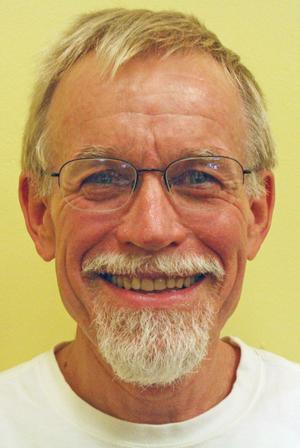
The Ministry Formation Program (MFP) provides an opportunity for adults to learn more about the Catholic faith and to be certified as lay ecclesial ministers in the Diocese of Davenport.
For some individuals, the two-year basic MFP has served as a springboard to further education and to qualify for positions as parish life administrators/pastoral associates, or in the areas of liturgy and catechetics. Those completing all three specializations are certified as pastoral associates.
In this series, The Catholic Messenger profiles individuals participating in advanced MFP studies and pursuing certification as pastoral associates. This week we profile Steve Imming, 62, a member of Holy Family Parish in Davenport where he serves as a lay trustee and finance council president. He also serves as a lector and eucharistic minister. He and his wife, Mary, have been married for 41 years and have three grown children and two grandchildren. Imming has worked for MidAmerican Energy Co. for 36 years and currently serves as business manager at Louisa Generating Station, south of Muscatine.
Q. What inspired you to pursue adult faith formation through MFP?
A. The desire and interest to be more knowledgeable of the Catholic faith.
Q. Why did you decide to go beyond basic MFP?
A. I feel that, given the shortage of priests, the laity must be willing to step up and be prepared to do what they can to help so the priests can concentrate on the sacraments and other work that only they can do.
Q. Did you always intend to complete the full, five-year MFP?
A. No, it was during the basic MFP that I learned about the Parish Life Administrator (PLA) program and began to think that if a person were prepared to serve as a PLA he or she would be capable of serving in many roles in a parish even if that person weren’t commissioned as a PLA.
Q. When do you anticipate graduation from MFP?
A. I needed to put the program on hold for a while because of work and other responsibilities. Now I’m back in the program and feeling good about it. I should graduate in two years, after completing the liturgical and pastoral parts of the program.
Q. How are you using what you’ve learned through MFP in your parish, life and family?
A. What I’ve learned has given me a deeper understanding of the ministries I’m already involved in and confidence to get involved in others.
Q. What is the most valuable aspect of MFP for you?
A. For me it’s a tie between the opportunity to learn from some of the most knowledgeable and dedicated people in our diocese and the opportunity to discuss the wide variety of topics we studied with these people and my fellow learners.
Q. What has been the most challenging aspect?
A. It’s been a lot of work but some of it has been self-inflicted. I’ve found myself digging into some things far deeper than necessary to complete the assignments just because I found them particularly interesting.
(Small-group MFP classes are still getting underway, says IlaMae Hanisch, MFP coordinator. If you would like to participate, contact her at Hanisch@davenportdiocese.org).








